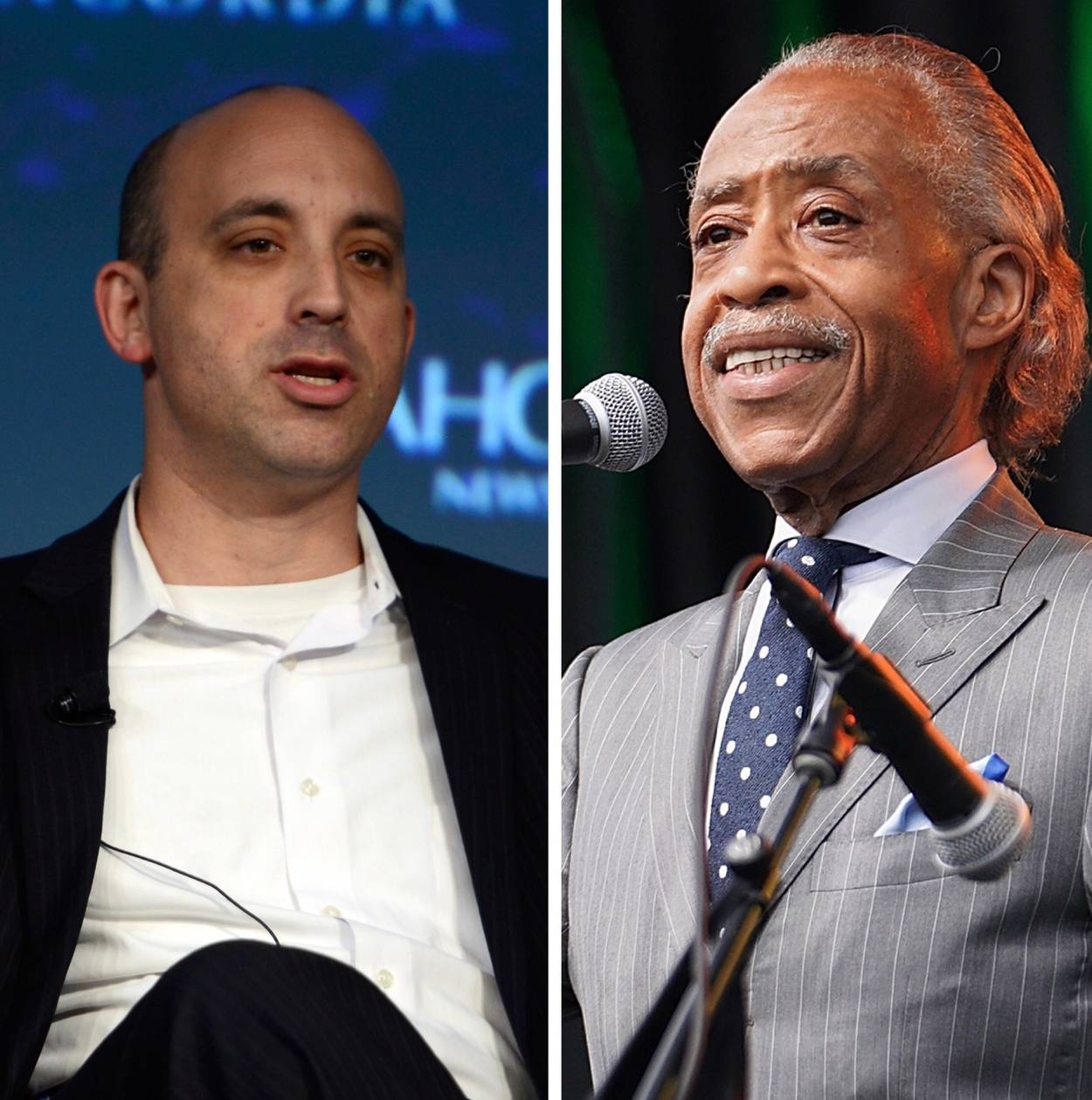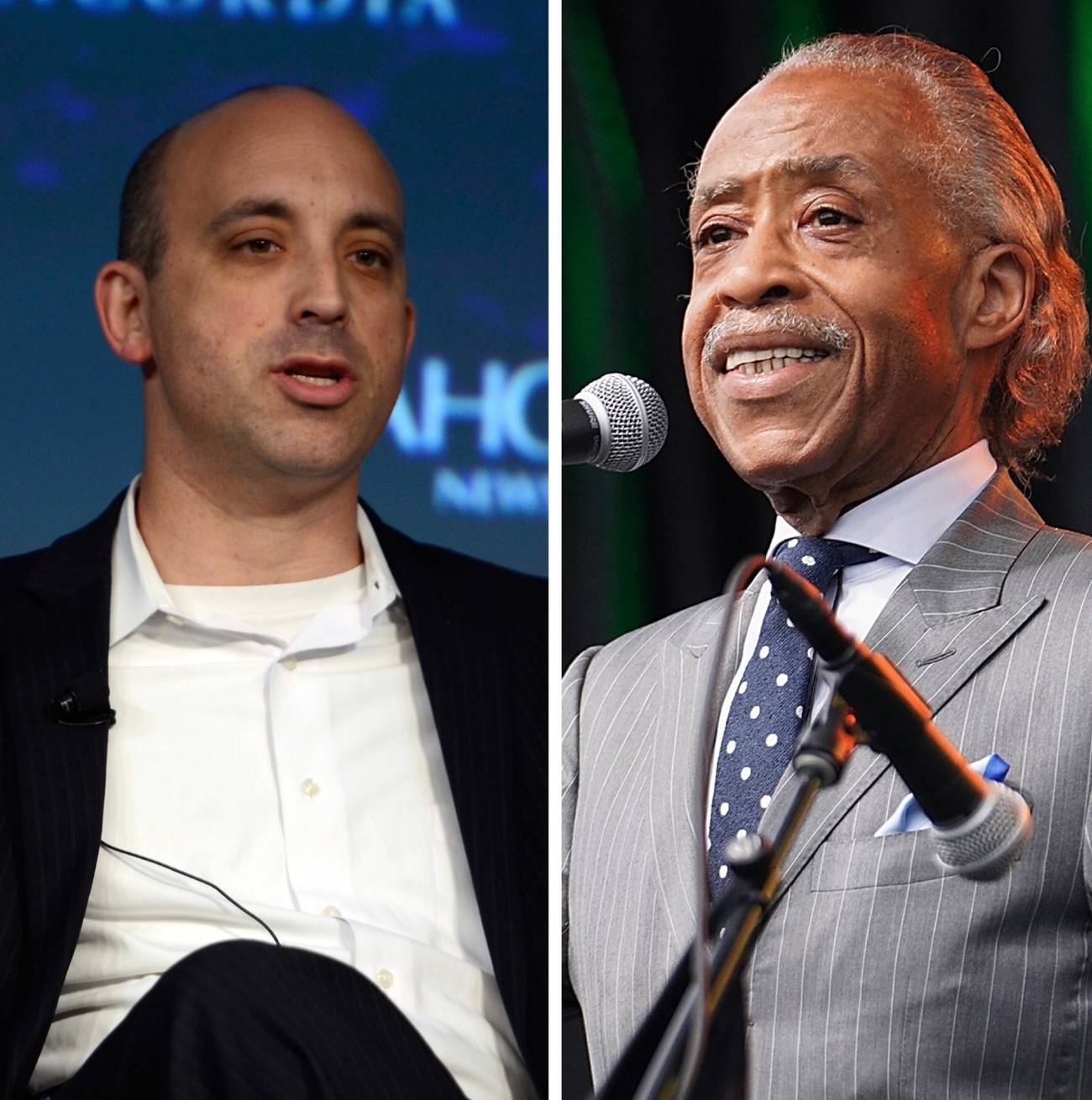The Mind-Bendingly Insane, Completely Craven, Utterly Unconscionable Redemption of Al Sharpton
You’re not confused. The ADL Is Becoming as Bad as You Think.




This past weekend, the Jewish Council for Public Affairs, an umbrella group uniting 125 local Jewish communities and 17 national Jewish organizations, sent an email to its followers proudly announcing that it has signed on as a partner in the Virtual March on Washington this week, an event organized by Al Sharpton.
Because last week also marked the 29th anniversary of the Crown Heights riots, it’s worth it to stop and recall that among his many distinctions—MSNBC pundit, and an adviser who reportedly regularly speaks to Democratic presidential candidate Joe Biden, collector of innumerable sateen suits—Al Sharpton is also currently America’s only living pogrom leader.
After a car driven by a Hasidic Jew accidentally swerved and struck a young African American boy, killing him, hundreds of the neighborhood’s Black residents rioted in the streets, chanting “death to the Jews!” as well as looting stores, attacking anyone who was visibly Jewish, and ripping mezuzot off of door posts. Sharpton was quick to arrive on the scene, leading a march in which participants burned an Israeli flag and called to kill all Jews. At the young boy’s funeral a few days later, Sharpton delivered a eulogy that borrowed heavily from The Protocols of the Elders of Zion, saying that the Jewish residents of the neighborhood practiced “apartheid” and were there only to further the Jewish global grip on money and power. He ended by ominously shouting: “pay for your deeds.”
At least one Jew had already paid the ultimate price for Sharpton’s incitement: A few days earlier, 20 Black men surrounded Yankel Rosenbaum, a 29-year-old student, stabbing him in the back and beating him so badly they smashed in his skull. Rosenbaum succumbed to his wounds later that night. Sharpton showed up on the scene soon after, ensuring that the rioting continued for days.
As the years went by, Sharpton was given ample opportunity to apologize for his prominent role in this modern day anti-Semitic bloodletting. He never did.
Why, then, is this unrepentant hater being supported by a major Jewish organization? Why, barely a year after a spree in which visibly observant Jews were violently attacked in record numbers, are Jewish organizations sidling up to kiss Sharpton’s ring?
One might be inclined to rail against the JCPA—if, that is, you didn’t understand that it’s a meaningless umbrella organization for local JCRCs (Jewish Community Relations Councils), many of whom routinely ignore it. So where’s the real power here? Who actually kashered Sharpton enough to send the signal to other, lesser organizations that it was OK to lend him their name and whatever credibility they might still be able to pretend they have?
Unbelievably, it was the ADL.
If you’re not particularly invested in the annals of organized Jewish life, you may still remember the Anti-Defamation League as a sterling organization, a staunch and serious bulwark that once inspiringly saw the fight against anti-Semitism as expanding its mission to defend and protect other minorities.
No longer. As soon as he took over the venerable organization in 2015, Jonathan Greenblatt, a former Obama aide, committed himself and his group’s considerable resources not to the hard and often thankless job of documenting and, when needed, standing up to prejudice, but to the far trendier and more glamorous pursuit of amplifying the sort of headlines that sophisticated, educated, affluent people—whose circumstances couldn’t be any more different than those of the actual Jews being physically attacked in their far less glamorous neighborhoods—like to pretend matter.
Here’s a clear and maddening example: One key reason good, honest people used to trust the ADL was the group’s commitment to painstakingly tracking the number of anti-Semitic attacks in America, a survey long considered our most reliable barometer. In 2018, however, the group came under criticism for flubbing its reporting in a major way, feeding the perception—repeated and amplified by the mainstream media—that anti-Semitism in America was sharply on the rise as a direct result of Donald Trump’s election. When examined, the group’s alarming claim—that anti-Semitic incidents spiked 57% in 2017—fell apart: First, the group admitted it wasn’t monitoring confirmed attacks but rather reported attacks, a far weaker metric; second, and much more seriously, the ADL’s report counted not only incidents that could reasonably be considered bona fide attacks or threatened attacks but also occasions of Jews “perceiving themselves victimized due to their Jewish identity.” As a result of this methodological choice, the ADL’s survey, for example, counted hundreds of threatening calls to Jewish community centers made by a mentally troubled Israeli teenager. You had to read the report’s fine print to learn that the number of violent attacks against Jews that year had actually decreased by 47%; Greenblatt did not advertise this finding in his public communications, going so far as to write in The New York Times and say that “incidents include high-profile ones such as neo-Nazis marching in Charlottesville, Virginia, chanting ‘Jews will not replace us,’” as well as “physical assaults.” The bottom line was clear: The head of the ADL, contrary to his organization’s own findings, was arguing that a clear and present danger threatened the well-being of American Jews, a danger charged and accelerated by the president.
Despite paying lip service to anti-Semitic violence from groups traditionally associated with the left—it was impossible not to, given the swelling of violent incidents involving Black assailants battering Jews in New York, hardly a stronghold of the Klan—Greenblatt continued to tether his group to the social media driven efforts of the #Resistance. In June, for example, he became one of the most vocal advocates calling on Facebook to censor pro-Trump political ads. The man he joined in this effort to stifle free speech and censor a business owned by Mark Zuckerberg, a successful Jewish entrepreneur? Al Sharpton.
Greenblatt’s decision to choose faddish politics over the less glittering work of keeping Jews safe is maddening enough. It’s even more infuriating that he failed; having made his odious moral decision, he then refused to even seek out the minorest price from Sharpton for bringing him back into the fold of acceptability—not even a simple apology that would at least telegraph a distaste for anti-Semitism to Sharpton’s many followers. Greenblatt couldn’t even muster that small gesture. A soulless and cynical political operative is one thing; a supine and ineffectual one is another.
Where does all this leave us, regular Jews who don’t care too much for the skullduggery of organizational politics and who just want Jews to be able to go to the store or play in a playground or jog in the park without having their heads bashed in?
It’s time for us to realize that many of the organizations we considered to be cornerstones of American Jewish life are dying. Some are imploding in obvious ways, as COVID-19 or other external circumstances rob them of their life force in one fell swoop. But many more are ceasing to exist by becoming something very, very far from what they were established to be, and by harnessing their energies to groups and causes that have little or nothing to do with Jews. The ADL is one such example; so is the Jewish Community Relations Council of New York, which continues to cheer on Mayor Bill de Blasio even as he blatantly and vilely targets Jews—and Jews alone—for their role in spreading the coronavirus and does absolutely nothing to keep his Jewish constituents safe from violent attacks.
These groups, and many more like them, have sadly chosen the benefits of being associated with the smart set over the duty of standing with their own community.
What’s most challenging here for us regular folks is that we could once count on these organizations to be our moral compasses—to study and understand the world in ways we couldn’t and to then point us in the right directions, first in knowing what was right and what was wrong, and then in confidently spending our resources (time, money, attention, and more) accordingly. No more.
As we enter Elul, a month of introspection and moral accounting, there’s one small but not unimportant thing we must do to make ourselves and our communities safer, stronger, and more just: We can take back this burden—and the power that went along with it. Let us stop supporting, in deed or check or word, any organization that chooses Instagram politics over needy people. Let us abandon those who huddle with pogromists. Let us demand the respect we deserve, and reject anyone who uses “the Jewish community” as a prop in some seedy political game. We’ve real enemies, and we haven’t the luxury of self-serving officials happy to sacrifice us for their own benefit. It’s time to be our own leaders.
Become a member of Tablet Magazine
Liel Leibovitz is editor-at-large for Tablet Magazine and a host of its weekly culture podcast Unorthodox and daily Talmud podcast Take One. He is the editor of Zionism: The Tablet Guide.